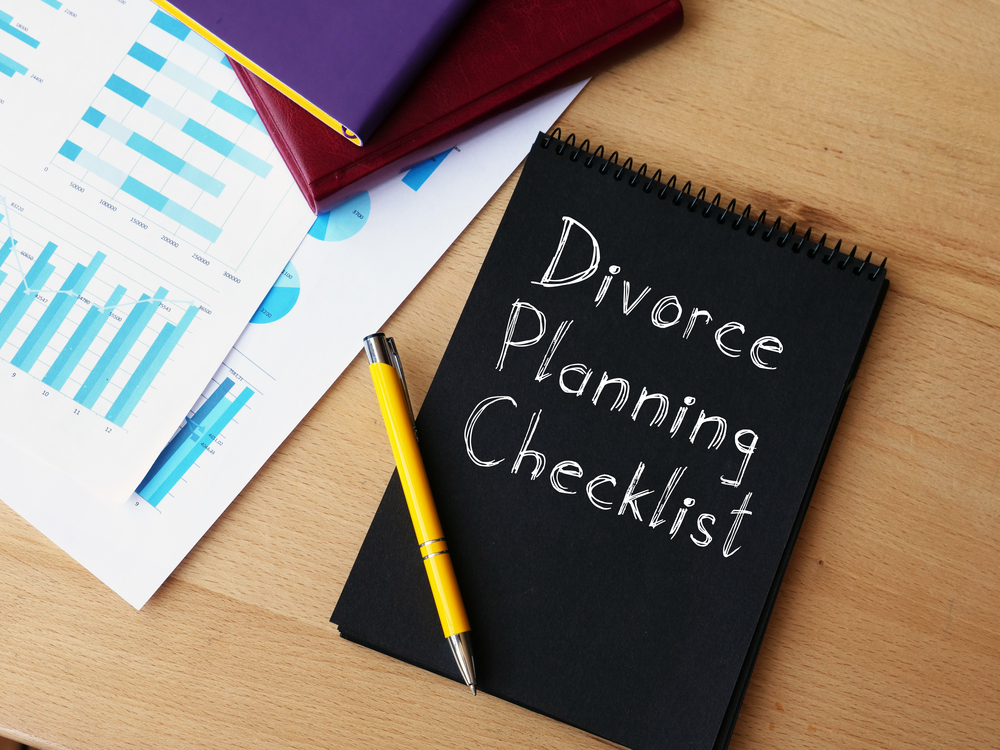Divorce is rarely simple, but when a divorce involves substantial assets, it’s even more of a challenge. When going through a divorce in Newburgh, NY, you’ll need a high-asset divorce attorney who understands your unique circumstances and can help you navigate this special situation. As an experienced family law firm, we’re here to guide you through the key points wealthy couples need to consider when entering into divorce proceedings.
Advice From a High-Asset Divorce Attorney: Six Legal Considerations for High-Asset Divorces in Newburgh, NY
1. Marital Property vs. Separate Property
The first thing to consider and understand is the distinction between marital property and separate property. Any assets inherited or attained before the marriage are considered separate property and belong to the individual. These assets aren’t subject to division. In contrast, marital property belongs to you and your spouse and includes anything earned or acquired during the marriage.
Any separate property used for marital purposes or that is commingled makes the situation more complex. This can include assets such as a personal bank account to which you added your spouse’s name or inherited stock placed into a joint investment account. Protecting these assets may require technical legal strategies and a specialist to trace the assets back to their origin.

2. Equitable Distribution Laws
New York’s equitable distribution laws concern marital property rather than separate property. All marital assets are subject to fair distribution between the parties but are not necessarily divided equally. A court will decide what’s considered fair after considering several factors, including the length of the marriage, the future financial needs of each spouse, and the financial contribution each has made.
Read the rest of this entry »Ask a Lawyer: 5 Tips for Preparing for a Divorce
Divorce is always a complex, emotionally charged process that can disrupt your life in numerous ways, but with proper preparation, it can be a smoother experience. If you’re on the fence about hunting for a “divorce lawyer near me” in Jamaica, NY or still at the consideration stage of divorce, read on to learn some tips about how to prepare for the fastest and best resolution.
Ask a Divorce Lawyer Near Me: 5 Tips for Preparing for a Divorce

1. Seek Legal Counsel Early
A lawyer with expertise in New York family law will explain all your legal rights, the different paths to divorce (such as mediation or litigation) and which one is most likely to work best for you, and the potential outcomes specific to your situation.
Don’t underestimate the value of legal advice as you plan for a complex legal procedure like divorce: getting a lawyer involved from the start can make the whole thing go much more smoothly.
Read the rest of this entry »Getting through a divorce or other family law matter is intensely personal and often an emotionally charged time. Beyond having to deal with all the legalities, you likely have a seemingly unending number of questions about how these laws might impact your future and that of your children. An experienced Newburgh, NY matrimonial lawyer can help you understand all of them.
Ask a Matrimonial Lawyer: What’s Matrimonial Law in Newburgh, NY About?

Matrimonial law is essentially that part of family law particularly related to marriage (and ending marriages). Some of what a lawyer can help you with in this area includes:
Marriage and Divorce
This involves both prenuptial and postnuptial agreements, annulments, legal separations, uncontested or contested divorces, and the division of assets and debts. New York offers both fault and no-fault grounds for divorce.
Read the rest of this entry »When you’re ready to end your marriage in Jamaica, NY, you may be confused about the steps in the legal process and concerned about child custody, property division, and other related issues. Consulting with an experienced divorce attorney allows you to protect your best interests as you navigate the challenges of divorce.
5 Tips From a Divorce Attorney in Jamaica, NY

Review the Available Grounds for Divorce
The state has established several grounds for divorce. Many couples file for a no-fault divorce, which means you’ve had an irrevocable breakdown of the marriage relationship for at least six months. You can also file for divorce based on separate living arrangements, adultery, abandonment for at least a year, abusive treatment, or incarceration of one spouse for three or more years.
Read the rest of this entry »Commingled property in a New York divorce
On Behalf of Claudio & Associates, Attorneys at Law
Under New York law, when a married couple decides to divorce, they must divide their marital property in a way that is equitable, or fair. But first, they have to figure out what, among all their assets and liabilities, is marital property and what is separate property. Complicating matters, there is also commingled property.
Generally, property owned by the parties before the marriage is separate property, and property acquired by the parties during the marriage is marital property, but there are some exceptions. For instance, an inheritance bequeathed to one of the spouses during the marriage may be considered separate property. That spouse may be able to keep that property after the divorce.
Mixing assets
The category of commingled property includes things that started out as separate property before they became mixed with marital property. This can be especially complicated in cases involving high asset divorce.
For instance, in the example of the inheritance above, imagine that Alex inherits $25,000 from his late aunt. Alex is married to Betty, but this inheritance begins as Alex’s separate property. Alex decides to deposit the money into an investment account that he co-owns with Betty.
Ten years later, Alex and Betty divorce. Alex claims that the investment account should be his separate property because his inheritance was the biggest contribution to the account. The court disagrees, saying that both spouses contributed to the account, making it commingled property. The account has been growing for more than 10 years and should be considered as part of the marital property.
Negotiation
Equitable property division often comes down to negotiation. Sometimes the parties have to identify what they want and what they are willing to exchange for it.
If you are contemplating divorce, it is a good idea to seek out advice from attorneys who have experience in New York divorce law.
How are child custody decisions made in New York?
On Behalf of Claudio & Associates, Attorneys at Law
Child custody may be at the top of your list of concerns during your divorce. Navigating child custody can be made easier if you know what to anticipate and how child custody decisions are made in New York.
Child custody factors used to determine custody
There is a list of child custody factors used to determine child custody. Each factor is designed to help determine what child custody arrangement is best for the child. The best interests of the child guide every child custody decision.
A primary child custody consideration is stability for the child, which is why the parent whom the child is initially placed with may receive preference for custody. Priority consideration is also given to the parent who was the primary caretaker for the child prior to the divorce.
Which parent is able to secure the best childcare arrangements for the child when both parents are working is another factor that is considered. Likewise, which parent can provide the best educational opportunities for the child will be taken into account.
Conditions of the home environment are also considered, as well as where the child’s siblings live. The ability of the parents to financially provide for the child is another factor that will be evaluated. The child’s preference may also be considered depending on the child’s age. Lastly, the family law court’s observations of the parents will also be considered.
The mental health of the parents is another factor. If one parent has mental health concerns, such as an untreated mental illness, it is unlikely they will receive custody of the child. The physical health of the parents is also taken into account and physical health problems, such as a disability, can impact a child custody award. Any history of spousal abuse, abuse, neglect or drug or alcohol use may also be considered when determining custody. Child custody can be complex but because of its importance, it is essential to understand how it is determined.
Choosing legal separation over divorce
On Behalf of Claudio & Associates, Attorneys at Law
New Yorkers have faced unprecedented challenges over the past few years, between social isolation, severe income or health challenges and a tumultuous and unpredictable economy. It is no wonder divorce rates are skyrocketing and families are feeling emotional and economic strain.
Some couples in Jamaica and surrounding communities, however, are choosing distance rather than divorce as a means of finding perspective and balance between personal and professional stressors. It is important, however, to understand the pros and cons of separation in New York as well as its legal implications.
Legal separation in New York
New York laws allow couples to separate rather than divorce by entering a separation agreement. A separation does not end the marriage, but it does place certain practical restrictions on the arrangement.
In New York, a legal separation requires a written agreement that the two parties with their attorneys voluntarily write up. The agreement can contain terms such as:
- Who will pay for certain bills
- Division of property such as vehicles and the family home
- Terms for spousal or child support
- Custody and visitation schedules
- Division of pension and retirement benefits
Family court does not draft the agreement but will enforce it if one spouse violates the terms. The couple must maintain two residences during the separation. If the couple plans to use the separation in a future divorce, the separation must have lasted for at least a year.
Separation allows a couple to gain some distance from each other with either undefined goals, or with the intention of either working problems out or eventually spitting up. Couples often will agree to separate if they cannot afford to divorce or if there are practical considerations such as healthcare maintenance.
Pros and cons of separation
It is important to realize that separation does not end the marriage, as all financial and legal responsibilities of marriage remain. It won’t solve problems if the spouses do not do the work, and the effort to communicate will take more effort. For situations where the couple cannot get along or where there is evidence of abuse, separation is not advisable.
On the plus side, a separation does not solve problems but does give two individuals a chance to decide if they can or want to be together in the future. Couples often use this pause for marital counseling. For some, religious formation prevents them from divorcing. The practical considerations are also attractive, as this arrangement is far cheaper than divorce, but can be the basis for divorce later if they are headed that way.
On Behalf of Claudio & Associates, Attorneys at Law
New York courts decide child custody cases based on their determination of the best interests of the child. In making this determination, just about every aspect of your child’s life and your ability to care for them, as well as the other parent’s abilities, will be taken into consideration. That can be daunting, but some key issues may be dispositive in your case. Your child’s exposure to parental substance abuse may be one of them.
How exposure to parental substance abuse harms children
The sad reality is that a lot of children are exposed to parental substance abuse. And this exposure can have a major impact on your child’s safety and wellbeing. Each of the following may present in your child if he or she has been exposed to parental substance abuse:
- Anxiety and depression
- Behavioral issues
- Poor school performance
- Emotional and social isolation
- Guilt
- Taking on parental responsibilities to care for siblings
- Increased risk of abuse or neglect
These are just some of the ways that your child may suffer physical, emotional, and mental harm due to exposure to parental substance abuse.
Making the case for modification
If you suspect that your child is being harmed by exposure to parental substance abuse, then you might want to seek a custody modification to better protect your kid. But in order to successfully pursue one of these motions, you need evidence to support your position.
Fortunately, there are many places that you can turn to find this evidence. Criminal records and police reports might be helpful, but so, too, can witness accounts. Your child may be willing to testify, but even if he or she isn’t, then you might be able to use your child’s therapist to support your argument. You may even want to consider asking the court to order a child custody evaluation.
Fighting to protect your child
We know that these matters can be frightening and stressful. But the good news is that you have a path forward to protecting your child. If you want to learn more about how to develop the legal strategy that you need to do so, then now is the time to consider reaching out for assistance.
What are the grounds for divorce in New York?
On Behalf of Claudio & Associates, Attorneys at Law
Ending a marriage is governed by New York law. Courts recognize seven legal reasons.
Procedure
Spouses must file for divorce in a New York State Supreme Court in the county where they live. New York courts issue judgments covering marital property, debt, child custody and spousal and child support.
One of these seven legal grounds for divorce must be asserted and approved by the courts.
No-fault divorce
This is also known as an irretrievable breakdown. It is the most common type of divorce in New York.
For approval, the marriage relationship had to irretrievably breakdown for at least 6 months. A court will grant this divorce only after the spouses settle matters such as property, debts, child custody, visitation, and spousal and child support.
Cruel and inhuman treatment
These grounds may be asserted when a spouse’s life is in danger because the couple lives together. But if the most recent abuse occurred over five years ago, this cannot be grounds for divorce over a spouse’s objection.
Abandonment
Abandonment constitutes grounds when a spouse leaves their partner or makes them leave. The abandonment must last for at least 1 year and the spouse does not intend to return.
Imprisonment
Imprisonment may be grounds if a spouse is incarcerated for at least 3 years and their release did not occur within 5 years. The imprisonment had to begin after marriage.
Adultery
Adultery is grounds for divorce unless the spouse encourages their partner to commit adultery, the couple has sexual relations after the adultery was committed, or both spouses engaged in this behavior.
The adultery had to occur within 5 years of a spouse’s discovery. An aggrieved spouse cannot be a witness for these grounds and another witness must testify.
Judgment of separation
This occurs when spouses lived apart for at least 1 year because of a court-issued decree of separation or judgment of separation. Both spouses must comply with all of the terms of the condition or decree.
These grounds are rarely used. Most couples proceed directly to divorce proceedings.
Conversion divorce
Conversion divorce is grounds when spouses lived apart for at least 1 year under a written agreement of separation. There are formal requirements for executing this agreement, which must be followed, such as notarized signatures, or the agreement will be invalid.
There are many legal issues that must be addressed in a divorce such as custody, support, and property division. Attorneys can assist spouses through this process and seek a fair and reasonable decree.
On Behalf of Claudio & Associates, Attorneys at Law
One of the most difficult issues in any New York divorce is valuing the homestead and allocating the net value between the parties. Each spouse may have his or her own opinion about the home’s value, especially if the family has lived there for more than five years.
Most couples have two options in valuing the home: sell the property and divide the net proceeds equally, or let one spouse stay in the home and give the other spouse credit for 50% of the net value. In either case, determining the value of the house is essential to resolving the issue. The key to both approaches is the use of a registered appraiser to provide an opinion as to fair market value.
Why hire an appraiser?
Qualified appraisers in New York have been trained in professionally accepted methods of appraising real property, and they provide the most reliable and impartial method for determining the fair market value of the family residence. Most qualified appraisers subscribe to what are called Uniform Standards of Professional Appraisal Practice.
Hiring an appraiser who follows the USPAP code provides protection against an adverse attack at trial if the parties cannot agree on the home’s fair market value.
What does the appraiser do?
The appraiser’s first step is to visit the property that is the subject of the appraisal. During this visit, the appraiser makes careful observations of the interior and exterior of the subject property, making note of any defects or ignored maintenance. The appraiser will also measure each room because the size of the dwelling is a significant factor in determining value. The appraiser will also tour the house’s neighborhood to see if it is comparable in value to surrounding houses.
The appraiser next collects information on recent home sales; this information includes the size of the property and, of course, the sale price. The appraiser then compares the subject property with the comparable properties that sold in the last 12 months. Using current knowledge about the local housing market, the appraiser determines the fair market value of the subject property. This opinion assumes that the value reflects the price that a willing seller would accept from a willing buyer.
The final report is usually given to the judge in the case and to the other party. A competent and professional appraisal report will often lead the divorcing parties to adjust their opinions about the value of the house, leading to a settlement of this difficult issue.
Anyone contemplating a divorce should contact a competent divorce attorney for advice on the cost and uses of a professional appraisal report.



